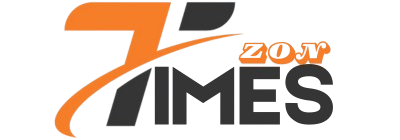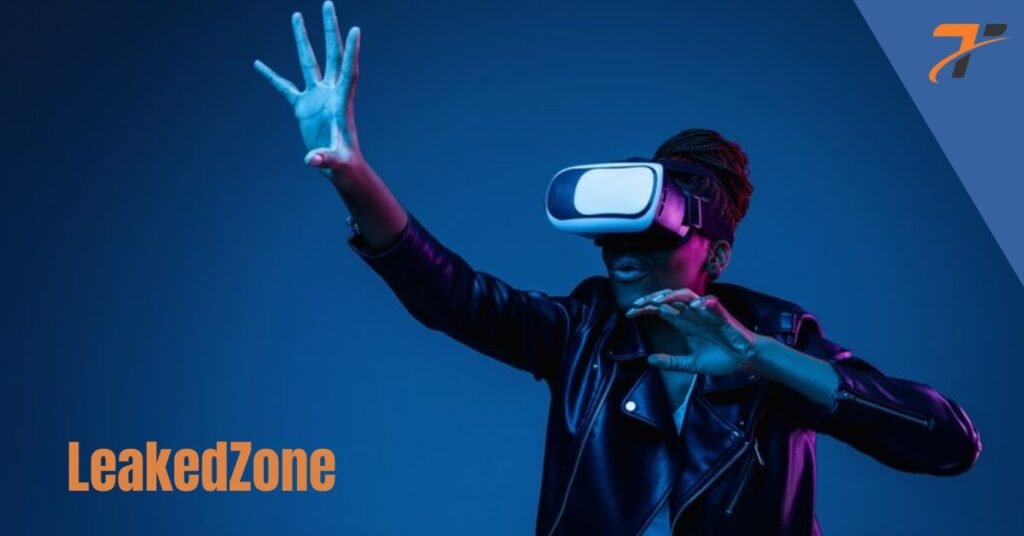In the ever-expanding world of the internet, a LeakedZone is a dangerous yet attractive realm. It represents spaces where unauthorized content circulates, offering users a tempting but risky chance to access material that they shouldn’t have. From leaked software and games to movies and sensitive documents, the LeakedZone can be a trap for anyone.
Although it may seem harmless at first, diving into these areas can have serious consequences. This blog post will explore what the LeakedZone is, how it works, why people use it, and the hidden risks that come with it.
What Is a LeakedZone?
A Leaked Zone is a digital space where users access unauthorized content through P2P sharing, often done via torrenting sites and file-sharing platforms. While tools like VPN can help hide user identities, they don’t protect against malware or the cybersecurity risks tied to these platforms.
People use Leaked Zone to access illegal downloads of movies, software, or other media, but they face significant data breaches, privacy concerns, and legal consequences. Instead, legal alternatives are a safer choice, offering content without the threat of malware infections, data breaches, or reputation damage that comes with illegal activity.
How Does LeakedZone Work?
The Leaked Zone operates on a decentralized structure. The content is often distributed using peer-to-peer (P2P) sharing systems, which means users share files directly with each other instead of downloading from a central server.
This approach makes it difficult for authorities to shut down operations, as the content spreads across individual users rather than a single point. Tools like VPNs (Virtual Private Networks) help users mask their identities while accessing these platforms, creating a false sense of security. Unfortunately, while a VPN might hide a user’s IP address, it doesn’t protect against the dangers lurking within the files.
1: Peer-to-Peer (P2P) Sharing
One of the most common ways content is shared in a LeakedZone is through P2P sharing. This system allows users to download and upload files simultaneously, speeding up the process. While this seems efficient, it also makes users more vulnerable. Every time you download from a P2P network, you expose your device to the risk of malware, viruses, and spyware hidden within the files. Torrenting sites and file-sharing platforms are often the go-to places for users accessing unauthorized content.
2: Anonymity Tools
In a LeakedZone, users often rely on tools like VPNs to stay anonymous. VPN services can mask a user’s IP address and encrypt their online activity, making it harder for third parties to track them. However, using a VPN doesn’t guarantee total protection. While VPN encryption offers some level of safety, it cannot stop malware infections or prevent users from downloading harmful content.
3: Public and Private Access
Some LeakedZones offer public access, where anyone can download files, while others are private communities requiring invites. The latter may seem safer, but they often harbor more sensitive and damaging leaked materials. Whether public or private, the risks remain the same. You can never be sure what you’re downloading or who else is involved, increasing the chances of falling victim to cybersecurity risks.
Read Also More: Global Internet Advertising Ventura Headquarters: Blueprint
Example: Malware Infection from Leaked Content
A notorious example of the dangers in the LeakedZone is malware hidden within unauthorized software downloads. For instance, when a user downloads leaked versions of popular video games or software, there’s a high chance they’re also downloading malicious software.
Once installed, this malware can take control of the device, steal personal information, or lock files for ransom. Malware infections from such content are common, with users often unaware until it’s too late.
Why People Use LeakedZone
Despite the known dangers, many people continue to use LeakedZones. The reasons vary from curiosity to necessity, but each reason carries its risks.
1: Access to Restricted Content
Sometimes, content is regionally restricted, meaning users can’t access it in their country. The LeakedZone provides an easy workaround. For example, someone in the U.S. might access content available only in Europe. However, this still constitutes illegal activity and puts users at risk of legal action.
2: Curiosity About Leaks
Many users visit these zones simply out of curiosity. The thrill of being the first to see or use something that isn’t officially available yet is appealing. However, curiosity can often lead to trouble. Leaked files can come with hidden malware, which can compromise your device’s security.
3: Garage Fashion and Niche Trends
Some people turn to LeakedZones to find underground fashion and niche trends. This “garage fashion” offers an alternative to mainstream options, but the risks of downloading infected files or stumbling onto illegal content remain high.
4: Free Software and Media
Accessing free software or media is perhaps the most common reason users visit these platforms. Whether it’s downloading a new movie, an album, or premium software, the promise of not paying is appealing. However, this often leads to severe consequences, including malware infections and legal consequences.
The Risks of Using LeakedZone
The dangers of the LeakedZone go far beyond malware. Users expose themselves to a range of legal and cybersecurity threats by engaging with these platforms.
1: Legal Consequences
When you download or share unauthorized content, you are participating in illegal downloads. In many countries, this can result in lawsuits, fines, or even jail time. The penalties for copyright infringement are severe, and laws are becoming stricter every year.
2: Malware and Viruses
As discussed earlier, malware is a constant threat in the LeakedZone. Malicious actors often hide viruses, ransomware, and spyware within the files, and once downloaded, these can infect your system, steal sensitive information, or destroy your data.
3: Data Breaches and Privacy Concerns
When interacting with P2P networks, you run the risk of exposing personal information. Data breaches can happen easily, especially when dealing with unsecured platforms. Once your personal information is exposed, it can be sold or used for identity theft.
4: Reputation Damage
For professionals or public figures, being associated with illegal downloads can damage their reputation. Whether you’re caught using or sharing leaked materials, the consequences can lead to job loss or public scrutiny.
More Post: Goes Tap-Tap-Tap in a Texting App: An In-Depth Guide
How to Stay Safe in a LeakedZone
If you find yourself tempted by the LeakedZone, there are a few ways to minimize your risks, though it’s always safer to avoid these platforms altogether.
Use a VPN
A VPN service can protect your identity by masking your IP address and encrypting your internet traffic. However, keep in mind that a VPN doesn’t protect against malware or other threats hidden within the files you download.
Legal Alternatives to LeakedZone
The safest way to avoid the dangers of the LeakedZone is by using legal alternatives. Many platforms offer content at affordable prices while ensuring safety and legality.
Benefits of Legal Alternatives
Using authorized content providers offers several benefits. Not only do you avoid the legal risks, but you also get high-quality, safe downloads. Additionally, supporting legal content helps creators continue producing work without the fear of piracy.
| Legal Alternatives to LeakedZone | Benefits |
| Netflix, Hulu, Disney+ | Secure streaming, licensed content |
| Spotify, Apple Music | Legal music access, virus-free |
| Microsoft Store, Google Play | Safe software downloads |
Is Using LeakedZone Illegal?
Yes, engaging with LeakedZone platforms is illegal in most countries. Copyright infringement is a serious offense, and penalties can range from hefty fines to jail time. It’s important to understand that using these platforms puts you at risk of facing criminal penalties.
How Can I Report Illegal Websites Like LeakedZone?
If you come across a website distributing leaked materials, you can report it to the authorities or organizations that specialize in online security. Many countries have cybercrime reporting websites where you can submit evidence of illegal activity.
Conclusion
The LeakedZone may offer tempting access to unauthorized content, but it comes at a high cost. From legal troubles to cybersecurity risks, the dangers far outweigh the benefits. By using legal alternatives, you can enjoy content safely and responsibly, while also supporting creators. Always be cautious and think twice before engaging in the LeakedZone.
Frequently Asked Questions
What is the LeakedZone?
The LeakedZone is a platform where users share and access unauthorized content, including leaked media, software, and personal data.
Is using a VPN in the LeakedZone safe?
While a VPN can protect your identity, it won’t safeguard you from the malware and other risks associated with illegal downloads.
What are the legal consequences of using the LeakedZone?
Users can face fines, lawsuits, and even jail time for participating in copyright infringement on platforms like the LeakedZone.

Vincenzo is a dedicated SEO expert with a passion for delivering top-quality content. He uses his knowledge to help websites grow and succeed in the digital world.

